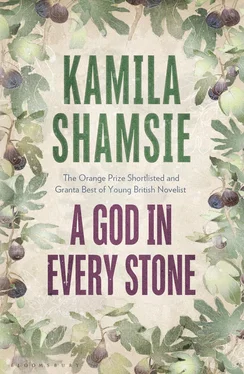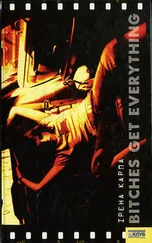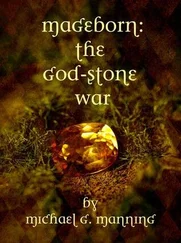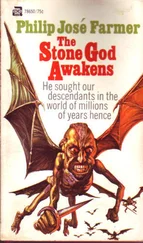Viv circled around the room so she could see what the woman was looking at, standing back far enough that her presence didn’t draw attention to itself. She knew at a glance the stucco carving at which the woman was staring, had always been repelled and fascinated by it. Men stood next to a tomb which had broken open to reveal a grotesque figure, one half of its body a skeleton, the other half a living, healthy woman. Her right breast rounded, heavy; on the left side, only ribs. The Nurseling of the Dead Woman. The Pathan woman looked up and spoke to Viv’s reflection in the cabinet glass.
— What is this?
Viv didn’t move closer, but allowed her reflection to be the one to speak to the woman in whose voice curiosity was the barest patina over animosity. Speaking slowly, finding workaround phrases when her Pashto failed to present the most direct options, Viv told her the story. A king’s senior wives filled him with poison against a young and beautiful wife and convinced him to bury her alive in a tomb. But because she was virtuous she was able to give birth to a child after her own death and to miraculously suckle him. For three years the child remained in the tomb with his mother, until the walls crumbled and he escaped into the jungle where he lived during the day; at night he would return to the tomb. This continued for three further years until the Buddha, in his compassion, visited the boy who became a monk as a consequence. Later, the boy converted his father to Buddhism. The story says nothing more about the mother.
The Pathan made a knowing sound at that last part, and for a moment the two of them were bound in a mutual sympathy. Or at least Viv thought as much, but then the woman rose up and turned towards Viv, as Medusa might turn from a reflection to cast a man in stone, and said, Where are the bodies?
— I beg your pardon.
— The bodies. What did you do with the bodies?
— I think you’re mistaking me for someone else.
— You’re English.
— Yes.
— Where did the lorries take the bodies? Give her back to me. Let me wash her corpse, let me pray at her grave, let me touch her face one last time.
The woman advanced on her as she spoke, and Viv moved backwards, thinking she should run — this Medusa, this Amazon, this grief-stricken woman might do anything — but she was transfixed by the green eyes, more haunting than the work of any stonemason.
The light changed again. A man walked through the open door. Crinkle-haired and almond-eyed.
— Najeeb!
When Qayyum stretched out on his mattress for the tiniest of rests he tumbled straight into dreams in which he wore the uniform of the 40th Pathans to try and reach his brother but at every gate of the Walled City a green-eyed woman held a pistol to his heart and asked why he had killed her sister. Finally at the last gate he felt the weight of a hand on his shoulder and turned round with a cry:
— Najeeb!
— Qayyum, no, it’s me. Wake up now, wake up.
Qayyum raised himself onto his elbow. Through the open window, the morning light was feeble. One of the most trusted of Ghaffar Khan’s men was there, his face discoloured with weariness — darkness below the eyes, pallor everywhere else.
— What is it? What happened?
— We don’t have time to talk of what happened. There’s work to be done.
The British still hadn’t opened any of the gates, he said, but some of the party leaders from Congress and the Khilafat Committee had been in talks with them to make allowances for the burials of those who couldn’t be interred within the Walled City — the Hindus who needed to take their bodies to the crematorium, and those Muslims who wished to bury their dead beside family members at the graveyard in Shahji-ki-Dheri. The funeral processions would take place in shifts, no more than one set of mourners at a graveyard at one time, and no more than ten people were allowed to accompany each body.
— How many have died?
— Who can say? But only a few are being taken for burial.
— What do you mean?
— Qayyum Gul, we don’t have time to talk of all the injustices of the night. Get ready, we need men to go round and explain the situation to the bereaved.
— Explain what? First the British kill our men, then they decide how we can bury them?
— This is exactly what you won’t say. We must be allowed to channel all the rage of the Walled City into resolve, not allow an explosion that we’ll be unable to control. Can I rely on you, General?
— Yes, sir. But. .
— Can I rely on you, General?
— Yes, sir.
The dead man was young, childhood’s mark still on his features. Qayyum lowered his head in shame as he stood in front of the body explaining to the boy’s father and brothers the terms of the funeral. If only Ghaffar Khan were in Peshawar, surely this wouldn’t happen. But the men accepted what he said without question. They’d worried they wouldn’t be allowed to the graveyard at all; any burial was better than none.
Only one of the men appeared not to listen to anything Qayyum said. He sat on the ground, holding the hand of the dead man whose face was his face. Twins, one of the men of the family whispered to Qayyum. He carried the corpse home all the way from the Street of Storytellers; he said it was like carrying his own death. Qayyum knelt in front of the unpaired twin.
— I’m sorry. To lose a brother must be the greatest of all griefs.
The man looked up at Qayyum.
— Do you have brothers?
— Yes, one.
— Was he on the Street of Storytellers yesterday?
— No. He’s in the Cantonment. He must be worrying about me but I don’t know when he and I can reach each other again.
— Come with us then.
— What?
— Come with us when we leave the Walled City for the graveyard.
Qayyum waited outside the house, smoking a cigarette, while the women of the family said their farewells, their voices rising through the windows as a battalion marched past. Through the smoke of his breath he watched the English soldiers’ expressionless faces. It was as though they were ghosts from some other time unaware of the cries that would pierce any living heart. He ground the cigarette beneath his heel, wished he were in an orchard away from these narrow alleys. Even at this hour, so soon after sunrise, the air was heavy. The body indoors had been surrounded by cut lemons to keep a scent of freshness about it — the family had been unable to go in search of ice during the curfew.
A donkey-cart arrived, the body was brought out, stiff as wood. Qayyum walked beside the cart as it progressed through emptied streets toward Gunj Gate, watching the driver’s bare foot as it rested on the donkey’s rump, the toes tapping out code for ‘slow down’ and ‘veer right’. The animal’s fur was discoloured and thinned where the man’s foot rested on it, but the foot itself was smooth. Only that foot, not its pair. Love wasn’t composed of grand gestures; it was found in the dead cells sloughed from a man’s skin for the thousandth morning in a row without expectation of even being noticed, it was a man rubbing his brother’s dead hand because he didn’t know how to stand aside and do nothing while his twin’s skin was ice-cold, it was a boy who learned without being told to always walk on the left-hand side of a man who had lost his right eye.
The donkey-cart took a zigzagging route past the homes of those who had known the dead boy but weren’t allowed to add their voices to the prayers at his grave. Windows opened all along the donkey-cart’s route and the fists of mourners released rose petals onto the corpse. Qayyum had expected to find himself an impostor in this funeral procession but instead, as the Walled City rained rose petals, he was reminded that grief never leaves, It merely sinks into you. A deep sorrow. It wasn’t his parents he thought of as the soldiers at the gate waved him through but the man whose features he could no longer sharply recall — Kalam Khan, hardly older than the dead boy whose body rolled with the motion of the donkey-cart until his father placed a hand on its chest to hold it still, releasing the scent of crushed roses.
Читать дальше












